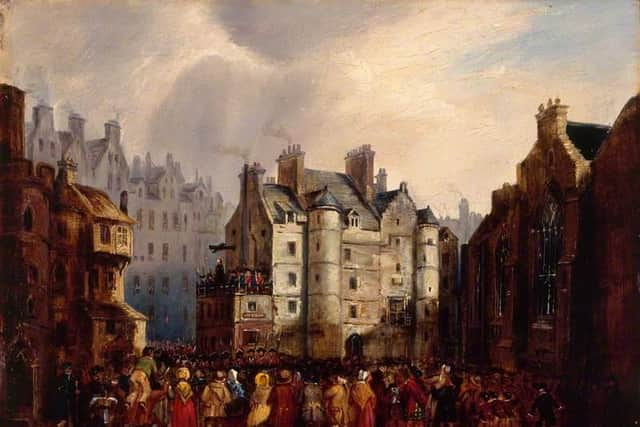Edinburgh crime news: Thomas Aikenhead, the student from the Capital who was the last person in the UK to be executed for blasphemy
and live on Freeview channel 276
Thomas Aikenhead was hanged in the Capital on January 8 after being charged under the Act against Blasphemy 1661.
He was 20 years old, and his sentence shocked the city, and the country.
Advertisement
Hide AdAdvertisement
Hide AdA student at the University of Edinburgh and frequented bars and social spots across the city, boldly stating radical, anti church views with friends and fellow students.
Five of these friends would eventually testify against him at trial, where he was forced to defend himself due to lack of funds.
It was said that he: “railed on Christ, saying, he had learned magic in Egypt, which enabled him to perform those pranks which were called miracles:
"That he called the New Testament the history of the impostor Christ.
Advertisement
Hide AdAdvertisement
Hide Ad"That he said Moses was the better artist and the better politician; and he preferred Muhammad to Christ.


"That the Holy Scriptures were stuffed with such madness, nonsense, and contradictions, that he admired the stupidity of the world in being so long deluded by them.
"That he rejected the mystery of the Trinity as unworthy of refutation, and scoffed at the incarnation of Christ.”
Sir James Stewart, the Lord Advocate pushed for the death penalty for the young man in order to set an example, despite the fact the death penalty should not be given unless it is the third offence of this nature.
Advertisement
Hide AdAdvertisement
Hide AdFirst time offenders were to be imprisoned. Thomas was sentenced to death on Christmas Eve 1696, giving him two weeks to live.
He desperately pleaded his case, and appealed to the Privy Council to support him.
They said that he could be granted reprieve if the Church of Scotland stepped in and spoke on his behalf. They did not do this.
Instead, the General Assembly supported his execution in order to curb "the abounding of impiety and profanity in this land".
There was nothing more that could be done.
Advertisement
Hide AdAdvertisement
Hide AdThomas was hanged in the Capital, with onlookers saying he had written a speech to read just as he walked up the gallows steps.
"It is a principle innate and co-natural to every man," he wrote, "to have an insatiable inclination to the truth, and to seek for it as for hid treasure."
It was also said that he died with a bible in his hand.
Although blasphemy remained a capital offence in Scotland until 1825, Thomas was the last person to be executed under the Blasphemy Act.